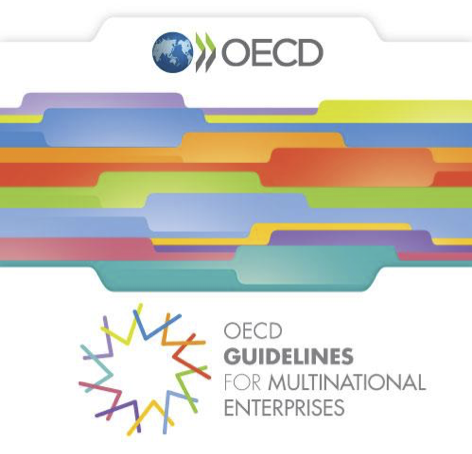MiningWatch Canada and OECD Watch have submitted extensive feedback to Canada’s National Contact Point as it reviews its procedures. Once again, we’ve found that the proposed changes are falling short of the much-needed reforms to that office.
Read the full feedback to the NCP here.
Background – A history of NCP ineffectiveness and deepening harm to notifiers
Since 2005, MiningWatch Canada has been involved in seven Specific Instance cases involving Canadian mining companies as an advisor or notifier (see full text for appendix). Over twenty years MiningWatch has also provided written or oral comments whenever the NCP has provided a consultation opportunity. As noted in our submission to the NCP’s Peer Review in 2018, MiningWatch’s active involvement in these Specific Instance cases leads us to conclude that the NCP’s procedures and practices have failed to address the fundamentally unequal power relationship between notifiers and corporations. Rather, the practices of the Canadian NCP have often exacerbated the effects of this power imbalance.
Among other concerns, the requirements of proof placed on notifiers in order to have a complaint accepted for mediation have been too high, cases have too often been dismissed on dubious and non-transparent grounds, and public statements made by the NCP in regard to Specific Instances have been unnecessarily harmful to the interests of notifiers and those harmed by the activities of Canadian multinational enterprises.
Our concerns, particularly with respect to the NCP’s failure to meet the OECD Guidelines’ principles of impartiality, predictability, equitability, transparency and accountability, culminated in the NCP’s mishandling of the complaint Bruno Manser Fonds (BMF) vs. Sakto (January 2016-May 2018), which remains deeply troubling as the notifier continues to suffer the consequences of the NCP’s mishandling of this case and refusal to take action to remedy the harm it has done.
In relation to that complaint, among other steps, the NCP requested Canada’s Canadian Department of Justice (DoJ) to send letters to BMF and to OECD Watch demanding that each civil society organisation “remove the Draft Initial Assessment [regarding the case] from its website and any other publicly accessible forum and cease and desist from any further replication of the Draft Initial Assessment.” MiningWatch received a similar demand from the NCP directly. Additionally, without any justification, the NCP removed, after ten months, information it had posted on its website that discussed “Sakto involving a Member of Parliament during the confidential NCP assessment process; (…) Sakto’s aggressive challenge of the NCP’s jurisdiction; (…) Sakto’s legal counsel making submissions to the Government of Canada’s Deputy Minister of Justice….” The NCPs new public statement on the case, posted in May 2018, blames only the notifier BMF for the dismissal of the case.
After trying repeatedly to address the issues of this case and the ongoing harm to the notifier with the NCP directly, to no avail, in 2021 MiningWatch supported OECD Watch in filing a Substantiated Submission with the OECD Investment Committee regarding this case. The Substantiated Submission remains under review. The harm caused to the notifier by the NCP’s mishandling of this case remains unaddressed, bringing into question the NCP’s adherence to the principle of accountability.
Finally, calls for reform of Canada’s NCP, created in 2000, are long-standing (see full text for appendix) from, among others, a parliamentary committee in 2005, to the UN Working Group on Business and Human Rights in 2017, to stakeholders and peers during the NCP’s Peer Review in 2019.
Given this history, and the fact that the NCP is currently under review by the OECD Investment Committee, we hoped the NCP’s proposed revisions would indicate a serious improvement in proposed practice going forward. We note the addition of a case tracker as a positive change. We think grouping the procedures under the main stages of the process will improve ease-of-use and look forward to seeing the new intake form that will be published on the NCP website to streamline and facilitate the submission of Requests for Review. We look forward to a mediator roster that reflects a wider variety of expertise and a more inclusive approach to the mediation process.
However, as we set out below, the NCP’s current proposed procedural revisions again fall far short of what is required. They fall short of recommendations made by the peer reviewers in 2019 and fall short of best practice among NCPs in other countries, such as The Netherlands and Australia. The NCP peer reviewers in 2019 and the UN Working Group on Business and Human Rights’ in its 2017 country report on Canada, among others, have pointed to needed governance reforms for the NCP, in part to address ongoing lack of confidence of civil society in the National Contact Point. As even good procedures on paper without good governance can lead to bad outcomes we start with a discussion of needed governance reforms.
Read the full feedback to the NCP here.
